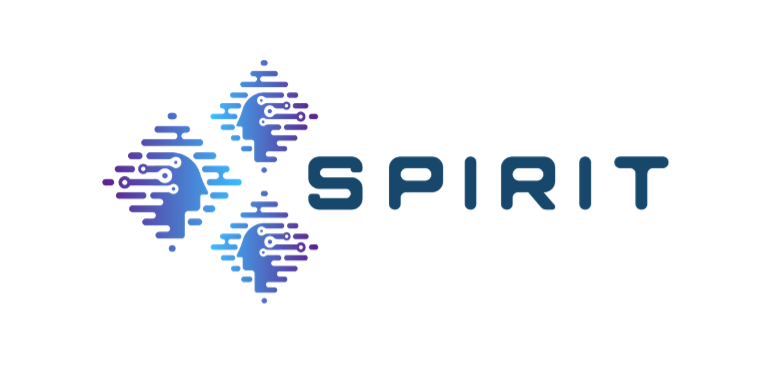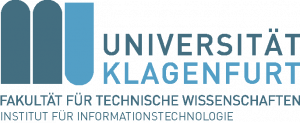GMSys’24 Program
The workshop will take place on 18th April, Thursday, 2024, between 4:00 and 5:40 pm. Each presentation is allocated a 20-minute slot, which includes time for both the presentation and the Q&A session.
4:00 – 4:20, Technical Session
How to make images less power-hungry: An objective benchmark study
Emmanuel SAMPAIO (InterDigital, France), Claire-Hélène DEMARTY (InterDigital, France), Olivier Le Meur (InterDigital)
4:20 – 4:40, Technical Session
Energy Cost of Coding Omnidirectional Videos using ARM and x86 Platforms
ibrahim Farhat (Researcher), Ibrahim Khadraoui (Research engineer), Wassim hamidouche (Lead researcher), Mohit K. sharma (Senior researcher)
4:40 – 5:00, Technical Session
Framework for automated energy measurement of video streaming devices
Martin Lasak (Fraunhofer FOKUS), Robert Seeliger (Fraunhofer FOKUS), Goerkem Gueclue (Fraunhofer FOKUS), Stefan Arbanowski (Fraunhofer FOKUS)
5:00 – 5:20, Technical Session
VEEP: Video Encoding Energy and CO2 Emission Prediction
Armin Lachini (Bitmovin), Manuel Hoi (Alpen-Adria-Universitat Klagenfurt), Samira Afzal (Alpen-Adria-Universitat Klagenfurt), Sandro Linder (Alpen-Adria-Universitat Klagenfurt), Farzad Tashtarian (Alpen-Adria Universität Klagenfurt), Radu Prodan (University of Klagenfurt), Christian Timmerer (Alpen-Adria Universität Klagenfurt)
5:20 – 5:40, Technical Session
Modeling Video Playback Power Consumption on Mobile Devices
Bekir Turkkan (IBM Research), Adithya Raman (University at Buffalo, SUNY), Tevfik Kosar (University at Buffalo, SUNY)
Call For Submissions
As last year, GMSys focuses on energy reduction in multimedia systems, with a specific emphasis on video streaming. Video streaming accounts for over half of the digital data traffic and plays a significant role in the global impact of digital technologies on climate change. The demand for video streaming continues to rise, driven by advancements in camera and display technologies, enhanced Quality of Service (QoS) provided by service providers, and the emergence of deep machine learning techniques. Consequently, the urgency to address the environmental footprint of video streaming has become more pressing. Video streaming involves several stages, including content production, provisioning, delivery, and consumption. Within these stages, the primary challenge lies in finding ways to make video streaming more environmentally friendly without compromising quality. Factors such as resolution, bitrate, device type, and network speed all play a crucial role in determining the resources required for video streaming, ultimately influencing energy consumption and emissions.
The International Workshop on Green Multimedia Systems 2024 aims to bring together experts and researchers to present and discuss recent developments and tackle the challenges associated with energy reduction in multimedia systems. This workshop focuses on innovations, concepts, and energy-efficient solutions from video production to processing, delivery, and further consumption. Please see the Call for Paper.
Topics of interest include (but are not limited to):
- Content Production & Provisioning
- Energy usage analysis for video encoding
- Energy-efficient video encoding
- Energy-efficient techniques for video encoding in Computing Continuum
- AI approaches for energy efficiency in video encoding
- Content Delivery
- Energy usage analysis for video streaming
- Green video streaming over 5G and 6G networks
- Energy-efficient video streaming
- AI approaches for energy efficiency in video communication networks
- Energy-efficient approaches for video caching distribution at multiple locations, e.g., CDN
- Content Consumption
- Energy usage analysis for decoding and displaying video on user devices
- Energy-efficient video decoding techniques
- AI approaches for energy efficiency in video decoding
- Educating users to utilize green multimedia services
- Understanding user behavior and willingness for green video streaming
- End to End Video Streaming
- Holistic energy optimization of a video streaming system
- Usage of AI/ML for digital twins to improve future streaming workflows energy consumption and efficiency
Submission Guideline
-
- Full/research papers: up to 6 pages, including references
- Short/industry position paper: 1-2 page(s) (+1 page for references, if any)
- Papers must include author names and affiliations for single-blind peer reviewing by the program committee, using double column ACM style format
- Submit your Full or Short Paper here
Important Dates
-
- Full and Short Paper Registration: January 26, 2024
- Full and Short Paper Submission: February 2, 2024
- Notification: March 8, 2024
- Camera ready deadline: March 15, 2024
Organizing Committee
Co-Chairs:
- Samira Afzal, Post-Doctoral Researcher, Alpen-Adria-Universität Klagenfurt, Austri
- Robert Seeliger, Senior Expert New Media and Video Sustainability Lead at Fraunhofer FOKUS, Germany
- Christian Herglotz, Substitute Professor, Chair of Computer Engineerung, Brandenburgisch-Technische Universität Cottbus Senftenberg, Germany
Steering Committee:
- Samira Afzal, Post-Doctoral researcher, Alpen-Adria-Universität Klagenfurt, Austria
- Christian Timmerer, Full Professor, Director Christian Doppler Lab ATHENA, Alpen-Adria-Universität Klagenfurt, Austria
- Raimund Schatz, Senior Scientist and Thematic Coordinator, AIT Austrian Institute of Technology, Austria
- Tobias Hoßfeld, Full Professor, Chair of Communication Networks, University of Würzburg, Germany
Technical Program Committee
- Abdelhak Bentaleb, Concordia University
- Alexander Raake, TU Ilmenau, Germany
- Cormac Sreenan, University College Cork, Ireland
- Daniel Schien, University of Bristol, UK
- Frederic Dufaux, Université Paris-Saclay, France
- Farzad Tashtarian, Alpen-Adria-Universität Klagenfurt, Austria
- Franco Davoli, University of Genoa and CNIT S2N National Lab, Italy
- Hadi Amirpour, Alpen-Adria-Universität Klagenfurt, Austria
- Jan Outters, Ateme
- Jiyan Wu, OmniVision Technologies Inc, Singapore
- Katrien de Moor, NTNU Trondheim, Norway
- Marcelo knörich Zuffo, Universidade de São Paulo, Brazil
- Markus Fiedler, Blekinge Institute of Technology, Sweden
- Michael Welzl, University of Oslo, Norway
- Olivier Le Meur, InterDigital, France
- Radu Prodan, Alpen-Adria-Universität Klagenfurt, Austria
- Symeon Papavassiliou, National Technical University of Athens, Greece
- Stefan Pham, Fraunhofer FOKUS, Germany
- Zahra Shirmohammadi, Shahid Rajai university, Iran
Technical Sponsor
















